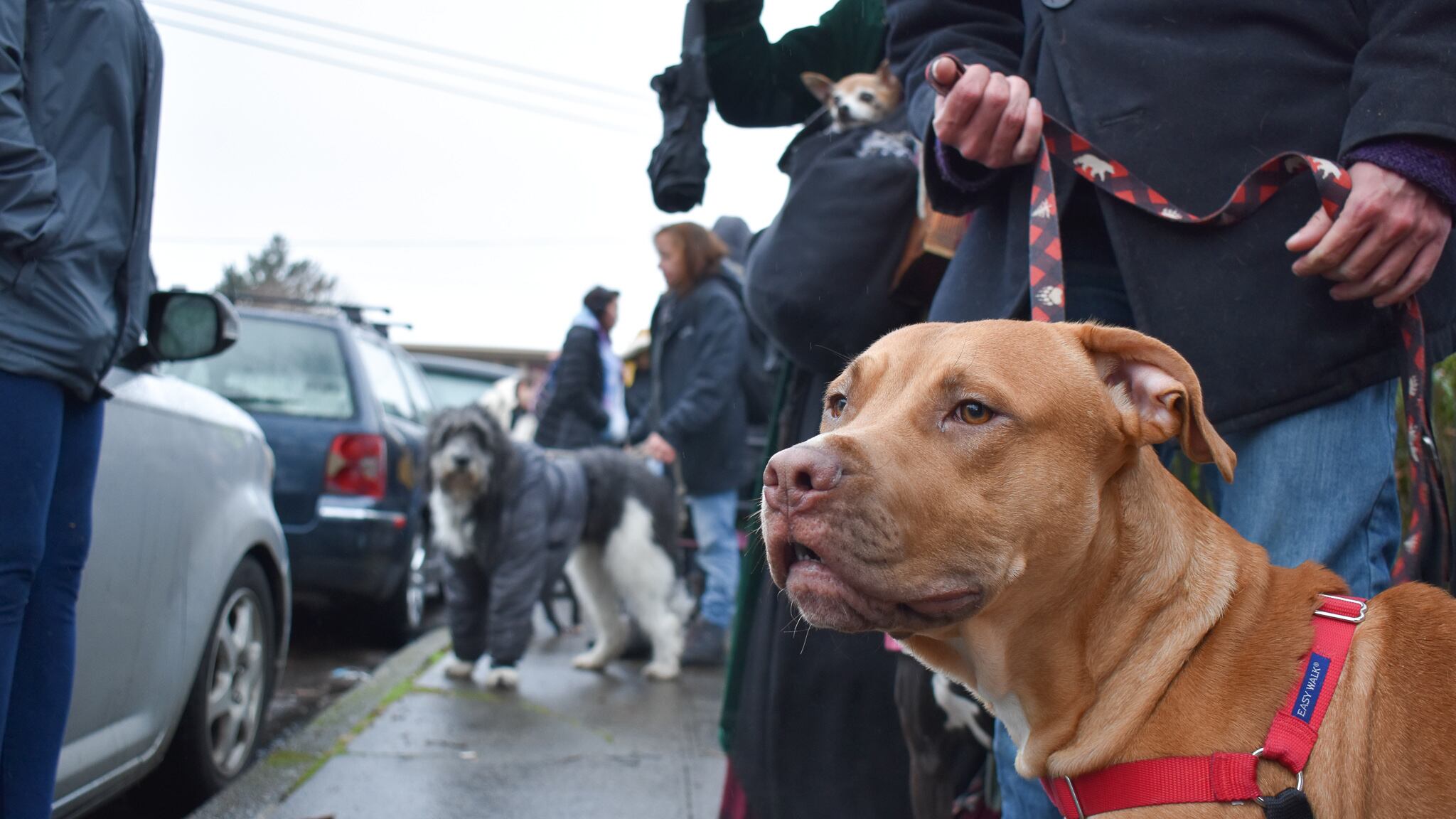Lola the dog was 1 year old when she started showing signs of serious allergies—namely itchy, irritated skin. Supporting herself and her daughter on disability income, Lola’s owner didn’t have the money to pay for the necessary treatment.
Enter PAW (Portland Animal Welfare) Team, a nonprofit organization that provides free and low-cost veterinary care to the pets of people experiencing poverty and homelessness throughout the Portland area.
“After PAW Team prescribed a hypo-allergenic diet and long-term course of oral medication and medicated topical treatments to manage flare-ups, the owner said our treatment was a ‘lifesaver’ that allowed them to keep the dog,” says Nicole Perkins, PAW Team’s co-executive director of development and operations.
Amid alarming poverty statistics—the number of people experiencing homelessness in Portland rose 20% last year—PAW Team races to provide services and medication to the animals that need it most (currently, the organization concentrates on cats and dogs).
In addition to offering free care, PAW Team has a free pet supply bank that offers pet food, cat litter, over-the-counter flea control, leashes, coats and toys.
“Sometimes we’ll see repeat pets, but most often, they’re new people establishing basic care,” Perkins says. “We’re open a few days per week for scheduled exams and appointments as well, and that’s when we provide services or ongoing medication for ongoing needs or chronic conditions.”
Perkins recently spoke to WW about PAW Team’s history and the relationships their volunteers cultivate with furry friends in need.
WW: How’d this all begin?
Nicole Perkins: We actually started as a grassroots organization in the late ‘90s. Veterinarians in town saw an increasing need to help the animals of folks living outdoors. We offer care in a couple of different ways. First-come, first-served high-volume clinics are usually focused on wellness care—vaccinations, parasite control, stuff like that.
Any recurring conditions to worry about from the unhoused pets?
Pets develop genetic conditions for all sorts of reasons. As they get older, the conditions [worsen], but the pets we see are extremely well taken care of. Their owners definitely prioritize the needs of their pets above their own.
Also, we don’t just see the unhoused. Some people live in apartments. Some don’t, certainly, but a lot of shelters allow people to bring their pets with them. Actually, one of the services we provide is up-to-date proof of vaccination so owners won’t see the pet as a barrier to long-term housing.
Do you ever visit the outlying “tent cities”?
That hasn’t been our role over the past few years, which has more to do with us as a small organization. In the future, when we have more capacity, who knows?
And you’re continuing to expand?
Unfortunately, we don’t see the need slowing down any time soon. At the rate that houselessness has increased in Portland over the last few years, more and more people are having to make some really tough decisions in their lives.
We’ve come to know our clients very well over the years in a variety of ways. Some families, we’ll see their pets once and never again, you know? There’s other families who’ll get their [pet’s] basic updated exams once a year. Particularly with older pets, we have been providing more involved support for some of them over their whole lifetime journey.

